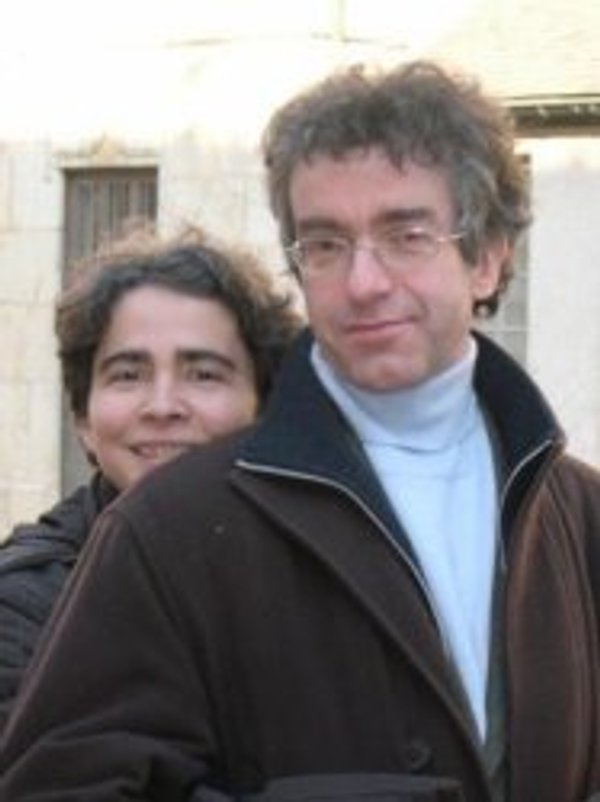Secret society, white mafia.” Such are the horrors that I had read in my Encyclopedia Universalis about Opus Dei. That’s why the first time I went to a centre I gave my mother the address and advised her to make inquiries if she did not hear from me by evening.
Why did you go there?
Out of curiosity. One of my teachers, whom I considered brilliant, belonged to the Work. I had ordered “The Way”, written by Josemaria Escriva, from a bookshop where the salesman did all he could to discourage me about this book. Upon reading it I immediately felt a great affection for its author.
What does it mean to be part of Opus Dei?
I am not just a member of Opus Dei, I am Opus Dei. There are as many forms of Opus Dei as there are members. That is what drew me into it: the freedom and the diversity that people have, yet with an identical vocation.
Has this membership changed anything in your life?
The change has been radical but inconspicuous; radical because my vocation presupposes efforts to lead a coherent Christian life, and inconspicuous because the things that I am called to do in my daily life are nothing spectacular.

How has your family reacted?
My mother was my whole family. Her distress and her incomprehension were such that despite my courses and the 300-kilometer distance to be traveled, I took the train to reassure her. Her resistance did not last long. However, she asked me to wait for a year before making my decision, on the pretext that with Opus Dei things were more serious. That maternal ruse brought a smile to my face, but I agreed.
What would happen if you wished to leave Opus Dei?
I can do this at any moment, but as a consequence I would be calling into question the way I have chosen to live. I would ask myself: Am I unfaithful to my vocation or did I not understand it very well in the beginning? But that would be as dreadful as asking myself if I had chosen the wrong husband.
Do people know that you are a member of Opus Dei?
My friends do, that goes without saying. So does the pastor of my parish. It seems right to me that he should be acquainted with his parishioners. As for other people, I don’t wear a pin marked “Opus Dei”, but I don’t hide my vocation. An example: At a dinner with colleagues from work, one lady attacked Christianity, the Pope and the Work. I asked her if she was talking this way because she had met people from Opus Dei, and I informed her that I had been a member for more than ten years. Choking on her words, she admitted she did not know anyone in Opus Dei and had never gone to a Centre.
Does it upset you when people describe you as “ultra-Catholic”?
It saddens me. Sometimes I hear myself saying: “How can I be part of Opus Dei?” because I don’t fit the cliches, namely that you are of the extreme right, that you come from a bourgeois family, you dress “conservatively”, you are scarcely open to discussion and you are preachy!
Opus Dei has been accused of a certain love for suffering . . .
I don’t look for suffering but when it presents itself I associate myself with the One who experienced every kind of agony. To be a co-redeemer with Christ is not love for suffering, it is fraternity.
What bothers you in Opus Dei?
Not being able to invite the Prelate to dinner! When I met him with my husband, we had the impression that we were being greeted by an old friend. So, since then, we miss him.
Pascal, how did you become acquainted with the Work?
I fell in love with the woman who was to become my wife.
How did you learn that she was a member?
There was a photo of the Founder on her mantelpiece. I had vaguely heard talk about it and people around me had made me suspicious. But I thought that if my future wife was a product of its teaching, Opus Dei had to have some great qualities.
What do you think about criticisms made of Opus Dei?
On the occasion of our beautiful and moving encounter with the Prelate, he said to me: “Opus Dei won't come between you and Melina one little bit.” I see every day how true this is. I am persuaded that my wife’s attachment to Opus Dei strengthens our union and feeds our happiness.
Some people claim that women have an archaic position in the Work . . .
It doesn’t seem to me that women have second-class roles there. And at home we share the tasks, each according to his or her skills . . . We realized quickly that we didn’t have all that much to do. My mother does the washing, my wife the cooking, and I pay for a lady to do the cleaning . . . I am not sure that Saint Josemaria would have congratulated me for this answer.
